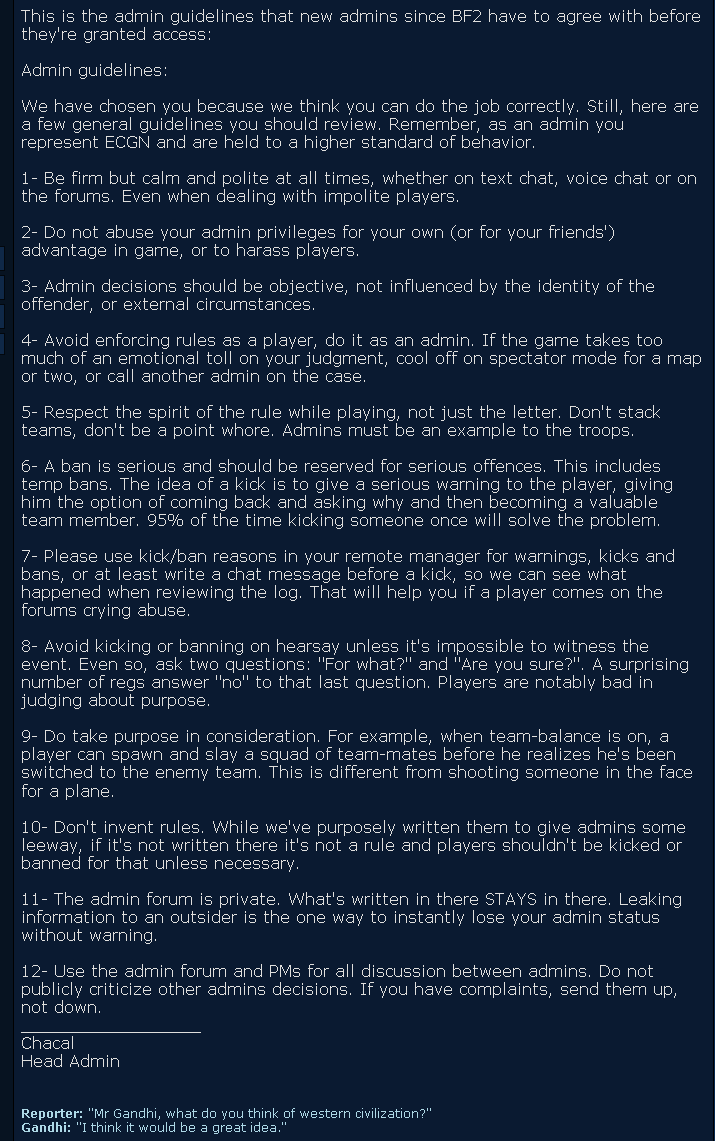The hardest part of running a shard is running the box around the game, and running the game itself. Configuration, maintenance, manuallly managing it using Vault Manager.
Events occuring inside the game (operating special avatars, policing) are an entirely different thing. They can be delegated to different people.
I'm not familiar with special avatars and story in Uru, but the policing part I'm very familiar with, because I have been managing teams of admins (called resEngs in MOUL) on game servers for years. Although this was for action games (different crowd), the concept is the same. Here's a quick breakdown of the duties involved:
- write rules for players, tailored to fit the game experience wanted by the community;
- write guidelines and rules for admins, also tailored to the context;
- an example of admin guidelines for BF2 servers Show Spoiler

- admin_guidelines_2.png (20.65 KiB) Viewed 3708 times
- if applicable, write a procedure for players to apply for adminship (unless this is on invitation only, which is usual);
- carefully selecting admins according to whatever criteria are appropriate for the community. This is the hardest part. You must beware of people on power trips, with poor people skills, or with bad judgment. Try to hire people from all over the world to ensure proper 24h coverage;
- make sure new admins know the rules and guidelines and sign off on them, along with consequences if those are not followed. This is in case of trouble. It is very hard to fire an admin for "having poor people skills" if no specific rule is broken;
- make sure new admins get proper training;
- put new admins in a trial period during which they are monitored and they get feedback and advice;
- put in place a hierarchical system with growing responsibilities (such as: junior admins, admins, senior admins, head admin) according to experience;
- give proper resources to the admins: private forums, documentation, tools;
- manage the roster, making sure there is an admin presence on game servers at peak times, problem times, and as much around the clock as possible;
- monitor chat logs, game logs, forums to make sure everything is running smoothly. Play the game anonymously for monitoring;
- provide arbitration in case of conflict;
- receive player complaints and act accordingly.
This was a different context of course, a competitive environment where strict rules had to be enforced and frequent violations were the norm. Uru is more relaxed, using the same rules would be like launching the SWAT team on a knitting club, but the framework for managing teams of admins should be the same.

 Nalates - Guild of Cartographers
Nalates - Guild of Cartographers